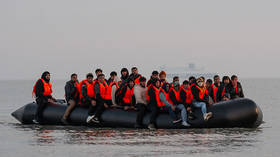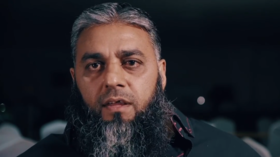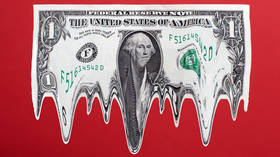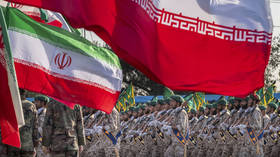Hillary Clinton: What to know about her recent controversies, scandals

Hillary Clinton, a former US secretary of state (and senator, and First Lady), will reportedly announce her 2016 presidential run Sunday via social media. Expect these recent Clinton scandals to surface again (and again) for the duration of her candidacy.
State Department emails
The latest Clinton controversy stems from her use of a private email account and server -- which was found to be insecure for at least three months -- to conduct official business as US secretary of state. Clinton has said she used her private email account -- just as past secretaries of state have done -- as a matter of convenience.
Then just over a week ago, it was revealed that Clinton used both her Blackberry and an iPad to email State Department employees from her private account and server.
US Rep. Trey Gowdy (R-S.C.), who heads the House Select Committee on Benghazi, issued a subpoena for the private server that hosted Clinton’s emails as the congressional panel investigates the 2012 attacks on the US consulate in Benghazi, Libya that killed four Americans, including Ambassador Christopher Stevens. Late last month, he announced that Clinton had failed to respond to the subpoena and had wiped her server clean. In response, the Benghazi committee has formally asked Clinton to answer questions about the server during an in-person, transcribed interview before May 1.
Clinton has said that she deleted 30,000 of about 60,000 emails exchanged during her four years as secretary of state because they were “personal in nature,” but that she turned all of her work-related emails over to the State Department.
Benghazi attacks
On September 11, 2012, following the disposition and death of Libyan strongman Muammar Gaddafi, a US diplomatic outpost in Benghazi was attacked, leading to the deaths of US Ambassador to Libya Christopher Stevens, a colleague, and two security contractors -- the latter two at an “annex” used by the CIA. Many top officials of the Obama administration, including the president himself, have been scrutinized ad nauseam by congressional Republicans and the media for actions -- or lack thereof -- taken before the attack. The administration has also been criticized for its behavior during the incident's aftermath, for allegedly attempting to pass blame for any mistakes made that led to the deaths.
Clinton, in her final days as secretary of state at the time, has been a particular focus of investigations, not only due to her role as top US diplomat, but also because of her position as the Democratic Party's likely standard bearer following President Obama's second and final term in the White House. Republicans have claimed that Clinton refused to offer increased security upon request of diplomats stationed in Libya prior to the Benghazi attack. Clinton has denied she ever received word of such requests. The aforementioned private email scandal has provided new fodder for congressional investigators interested in cornering Clinton over the incident. The Obama administration, meanwhile, has been blamed for indirectly providing arms to Al-Qaeda-linked extremists in Libya.
Diplomatic cables published by Wikileaks
In late 2010, Wikileaks published 250,000 classified documents sent by State Dept. diplomats from December 1966 to February 2010. The leaked cables -- provided by whistleblower Chelsea Manning, a US Army soldier stationed in Iraq at the time -- displayed the unfiltered face of America's diplomatic machinations, in which embassies were used as a vital tool for American espionage. For instance, secret cables sent under Clinton's name instructed US diplomats to gather "biometric data," such as "fingerprints, facial images, DNA, and iris scans," of African officials.
Other cables targeted the most personal information, including credit card numbers, of United Nations diplomats. Top UN officials -- including Secretary-General Ban Ki-moon and security-council representatives from China, Russia, France and the UK -- were also targeted. The leaked cables include myriad other revelations about American diplomatic maneuvers.
Despite the damning contents splayed out for all to see, Clinton asserted that the leaks were not an indictment of Washington's malevolence.
"Let's be clear. This disclosure is not just an attack on America — it's an attack on the international community," Clinton said.
"There is nothing laudable about endangering innocent people, and there is nothing brave about sabotaging the peaceful relations between nations," she added.
The Clinton Foundation donors
Last month, it was reported by the Wall Street Journal that the Clinton Foundation, a charitable organization run by the Clinton family, had accepted as much as $68 million from elite donors with close ties to foreign governments and state-run companies while Hillary Clinton was secretary of state. The conflict-of-interest allegations were denied by the Clintons, who said the donations were part and parcel of building coalitions to tackle the world's most pressing issues.
“We do get money from other countries, and some of them are in the Middle East,” former President Bill Clinton said last month. “The United Arab Emirates gave us money, do we agree with everything they do? No, but they’re helping us fight ISIS and they helped build a university with NYU. . . . My theory about all this is, disclose everything, and let people make their judgments.”
This week, McClatchy News Service reported that, since 2001, Saudi Arabia, Oman, Qatar and the United Arab Emirates -- governments that have been maligned for their dismal human rights records and for ties to terror funding throughout the Middle East -- gave as much as $40 million to the Clinton Foundation.
As RT has reported, from 2009 up to 2013, the year the Ukrainian crisis erupted, the Clinton Foundation received at least $8.6 million from the Victor Pinchuk Foundation, which is headquartered in the Ukrainian capital of Kiev, calling into question whether the donations were an attempt to curry favor from the US State Dept. Several alumni of oligarch Pinchuk's program have already graduated into the ranks of Ukraine’s parliament, while a former Clinton pollster went to work as a lobbyist for Pinchuk at the same time Clinton was working in government.
According to the International Business Times, the Clinton Foundation accepted million of dollars from a Colombian oil company before then-Secretary of State Clinton changed her previous position and supported a US-Colombia trade deal, controversial for its links to human rights violations. In addition, after the deal was finalized, Clinton's State Department "never criticized or took action against the Colombian government for alleged violations of labor rights at Pacific Rubiales," the oil company "at the center of Colombia’s labor strife," IBT reported.
Support for Iraq war, Patriot Act, bank bailouts
Despite a long career in and around government, Clinton has only held one elected position: US senator from the state of New York during the duration of the George W. Bush administration, from 2001 to 2009. Bush's two terms were full of divisive issues, especially following the attacks of September 11, 2001. Two of the top issues that galvanized Democratic opposition to the Bush White House included the American invasion of Iraq in 2003 and the USA Patriot Act, a broad-based national security law passed in late 2001 that was a basis for vast spying programs employed by the likes of the National Security Agency to this day.
Clinton gave the Bush administration political cover from the left on both issues, as she backed the initial invasion of Iraq and twice voted for the Patriot Act. Her Iraq vote became a major issue in her race against Barack Obama for the 2008 Democratic presidential nomination, which she would eventually lose.
Lincoln Chafee -- a former Republican senator, independent governor of Rhode Island and potential Democratic presidential nominee -- said this week that Clinton's vote on Iraq should disqualify her from receiving the Democratic nomination in 2016.
“I don’t think the next president of the United States should have voted in favor of that mistake,” Chafee said in an interview with AP. “And I don’t think the Democratic party nominee, in particular, should have voted for that mistake.”
Chafee, now a Democrat, was the only Republican in the Senate to vote against the Iraq invasion.
Clinton also supported the hugely unpopular bank bailouts amid the financial crisis of 2007-2008.












